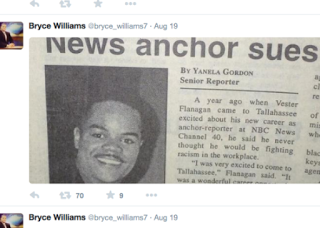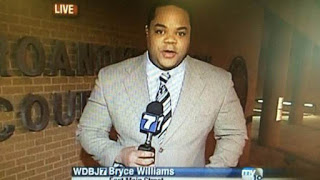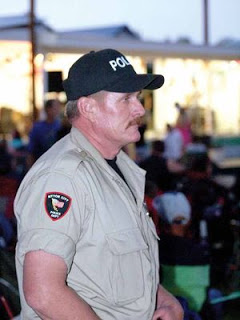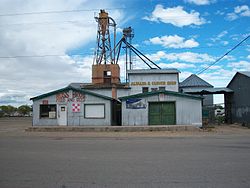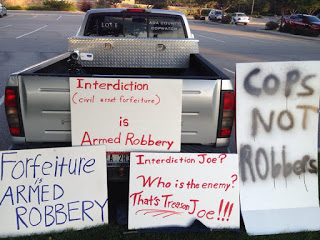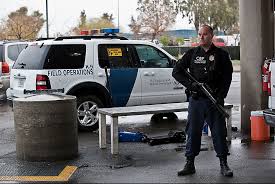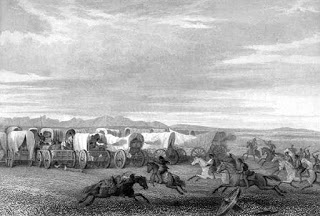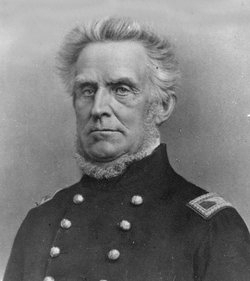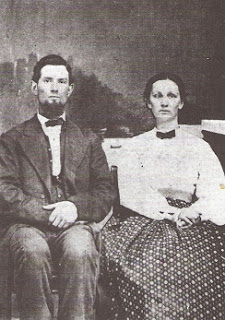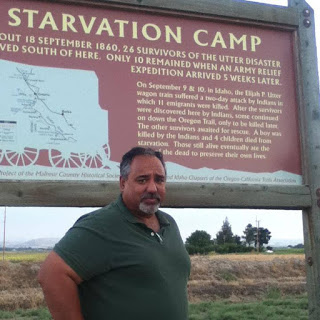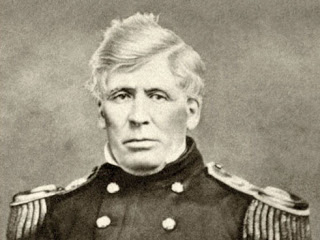A
Communist is merely a socialist in a hurry. Vester
Lee Flanagan, by his own description, was an impatient social justice
warrior. The murderous means he employed to punish those he
accused of bigotry made visible the latent lethal violence that
resides in State policies oriented toward the same objective.
Flanagan, also known by the professional name Bryce Williams, was a promiscuous petitioner to the EEOC. After apparently growing weary
of seeking to bureaucratize the violence he wanted to inflict on his
former colleague, he chose a more direct approach, one we could call retail-level Leninism. As a representative of the "Who" -- presumptive victims of discrimination -- Flanagan exercised "power without limit" by killing two individuals numbered among the "Whom" -- those presumed to be motivated by prejudice.
In
calculating the moral price of the murders in Roanoke, psychologist
James
Garbarino of Loyola University – like most of the Custodians of
Correct Opinion – gave the Social Justice Avenger an identity-based
discount, and passed the costs on to others who don't belong to a
specially protected category.
"The culture that we live in that supports and fosters violence that has such a strong theme of racism and homophobia all of that obviously was building up inside this man's head,” Garbarino pontificated.
Assuming
that Garbarino intended to convey an intelligible argument, rather
than leaving the air clotted with thought-stopping buzzwords, his
statement actually ratified Flanagan's rampage as
an understandable reaction to private bigotry. On this
construction, the amorphous abstraction called “society” is
implicated in Flanagan's consummately anti-social act – and his
victims own at least a portion of the blame for the criminal violence
that ended their lives.
A
more reasonable assessment is that he was an apt pupil of the Regime
– “the potent, the omnipresent teacher,” in
the words of Supreme Court Justice Louis Brandeis.
“Crime
is contagious,” observed Brandeis in the
Olmstead v. U.S. decision nearly a century ago, when the
surveillance state was in its larval stage and wiretapping by police
was looked upon with horror. “If the government becomes a
lawbreaker, it invites every man to become a law unto himself.... To
declare in the administration of the criminal law the end justifies
the means – to declare that the government may commit crimes in
order to secure the conviction of a private criminal – would bring
terrible retribution.”
In
the
deranged outpouring that has inevitably been christened a
“manifesto,” Flanagan name-checked prior mass murderers and
claimed that “what sent me over the top” was the murder spree in
Charleston by the similarly demented bigot Dylann Roof. Acknowledging
that it is perilous to seek a thread of rationality in the tapestry
of delusion woven by Flanagan, I would suggest that he clearly
regarded the “nasty racist things” he supposedly experienced as a
“gay black man” as offenses worthy of violent reprisal.
On
those occasions when someone of Dylann Roof's persuasion – broadly
defined – engages in an act of large-scale criminal violence,
somebody in the State's stable of collectivist chin-pullers will
issue an indictment against the “authoritarian
personality,” which is supposedly found only on the rightward end
of the political spectrum. Authoritarians are supposedly
characterized by rigidity in thinking, deep distrust of diversity,
and an irrepressible urge to punish those who deviate from
traditional norms.
It's
hardly a novel observation that many conservatives live down to that
description – but any honest observer will admit that there is a
plethora of punitive progressives, as well. One key distinction
between authoritarian conservatives and their progressive
counterparts is the fact that people in the latter category expect
the targets of punitive intervention to be not only penitent, but
grateful, for State-administered correction that can destroy
reputations, ruin businesses, and rend families asunder.
Those
refractory, incorrigible people who simply resist the chastening hand
of progressive correction must be banished from “respectable”
society. During the Obama Era, this familiar doctrine of totalitarian
“tolerance” has expanded to include actual bloodshed – not yet
of the official variety, at least domestically, but as part of a
breathtakingly cynical political trade-off.
 |
| Divine dispenser of lethal violence: Obama at hate crimes bill signing. |
In
2009 – as
previously noted in this space – the Obama administration
attached
federal hate crimes legislation to a $680 billion military
appropriation bill, thereby creating a remarkable hybrid – a
measure that would authorize unremitting slaughter abroad and
aggressive pursuit of thought criminals at home.
Chris
Hedges, a political progressive burdened with a conscience and
blessed with a gift for astringent honesty, dispelled the
self-enraptured rhetoric of the “tolerance” coalition by
describing how they had implicated themselves in the ultimate “hate
crime”:
"It
was a clever piece of marketing. It blunted debate about new funding
for war. And behind the closed doors of the caucus rooms, the
Democratic leadership told Blue Dog Democrats, who are squeamish
about defending gays or lesbians from hate crimes, that they could
justify the vote as support for the war. They told liberal Democrats,
who are squeamish about unlimited funding for war, that they could
defend the vote as a step forward in the battle for civil rights.
Gender equality groups, by selfishly narrowing their concern to
themselves, participated in the dirty game."
Yes,
the war funding meant, as a moral certainty, that innocent “people
of color” – including women and children – would suffer
violent, unnecessary death or permanent disfigurement. This would, in
turn, expand the recruiting pool for anti-American terrorists, given
that every time a drone-fired missile kills a child it simultaneously
creates several dozen potential suicide bombers. But of such broken
eggs are policy omelets made.
 |
| Besides, they're not all that important, you know. |
Yes, brown people overseas would die horribly as a direct result of an arrangement endorsed by the self-anointed leaders of the Tolerance Industry – but this was a tragically unavoidable sacrifice in the service of the larger good. After all, there are racist, homophobic, and misogynist “micro-aggressions” to be dealt with, and surely the traumatized feelings of victims exposed to such cruelty are injuries worthier of immediate attention.
 |
| No "micro-aggression" here. |
Never forget: Bombs and drones break human bones, but only “hate speech” can truly hurt us. Besides, when indiscriminate drone strikes are carried out by a paladin of progressivism, they're acts of applied tolerance, not violence.
Some commentators, in an ill-advised riff on Barack Obama's familiar and equally wrong-headed observation about Trayvon Martin, have suggested that if Obama had a son, he might look like Vester Lee Flanagan. Much more importantly, if the alliance that created the 2009 federal hate crimes act – call it the Coalition for Progressive Mass Murder and Thought Control – had begotten a child, he would think and act the way Flanagan did.
Dum spiro, pugno!


